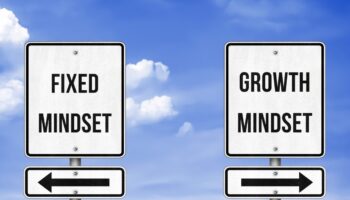Food & Mood: How Are They Linked?
The Nystrom & Associates provider consulted for this article is Zach Shivers, a Registered Dietitian Nutritionist.
It’s well known that our diet significantly impacts our well-being, including our emotional, behavioral, and mental health. Keep reading to learn how food affects your mood and healthy eating tips.
What We Eat Matters
Improving your diet can impact your energy levels, mood, and mental health. While sugar and processed foods can affect stress and other mood disorders, proper nutrition can help reduce the impact of depression, stress, anxiety, autism, autoimmune diseases, and much more. Related: How Mental Health Affects Physical HealthFoods That Help Your Mood
So what foods can help our mental health? Here’s a quick overview of what can help improve your mood.- Magnesium: Magnesium plays a crucial role in food and your mood. It’s an essential mineral that controls muscle and nerve function, blood glucose control, and much more. Bananas, dark leafy greens, dark chocolate, and almonds are all sources of magnesium.
- Fiber: Fiber helps you to absorb sugar from food slower, effectively avoiding sugar crashes. Beans, broccoli, apples, whole grains, and popcorn are fiber-rich foods.
- Whole foods: Reach for minimally processed foods as much as possible such as fruits, vegetables, meats, and eggs.
- Fermented foods: Probiotics are prevalent in fermented foods, which means they are full of healthy bacteria that help your digestive tract. For instance, sauerkraut, kimchi, kombucha, and miso are all fermented foods.
Food & Mood: Healthy Eating Tips
Eat Regularly
Are you eating regularly enough? Incorporating this into your routines could make a big difference in how you feel. Zach Shivers, a registered dietician at Nystrom & Associates, highlights this importance. Related: How Routines Benefit Your Mental HealthRoutinely eating every 4 to 5 hours makes us feel our best! After 4 to 5 hours, our blood sugar or energy levels decrease, which generally leads to side effects such as feeling tired, weak, low energy, poor mood, trouble concentrating, irritability, and/or extreme hunger, which can lead to overeating. Therefore, practice eating more often and see if this helps you have a better overall mood and more sustained energy levels throughout the day.
Start With One Meal at a Time
How can you improve your breakfast, lunch, or dinner? Start with one meal and work to improve that one first. Incorporate more whole foods into that meal. Once you’ve got that one down, move on to snacks or a different meal. Working one step at a time helps to decrease overwhelm of options throughout the day and make small improvements over time. It may take a while to feel the beneficial effects of your diet on your mood. However, note how your body feels when you start to make changes. Over time, this might encourage you to continue your new habits.Stay Hydrated
Dehydration can negatively affect concentration, mood, digestion, and energy levels. Drink at least 6-8 glasses of water a day to help improve your focus and overall well-being.Try Nutrition Therapy
Nutrition Counseling is another great way to learn healthy eating habits from a Registered Dietician. In Nutrition Therapy, any advice or recommendations you receive from our Dietitians will be tailored individually to your needs. Everybody is different, meaning no specific plan works for everyone. Our Dietitians will give specific advice to help you make sustainable lifestyle changes. Here are some benefits and things you can learn in Nutrition Therapy.- Learn about the impact that adequate protein, carbohydrate, and fat intake has on physical and mental health
- Help you form healthy relationships with all foods
- Create meal/snack ideas on a budget
- Reduce substance use or relapse
- Enhance medication effects and absorption
- Provide relevant and science-based answers to all your nutrition questions
- Give guidance in all things related to nutrition, from food choices to supplement recommendations
- Explore the impact of food on your mood in a supportive, goal-oriented environment
- Guide healthy weight loss methods that support overall health
- Help those with disordered eating patterns recover to embrace healthy lifestyle habits
- And much more!







